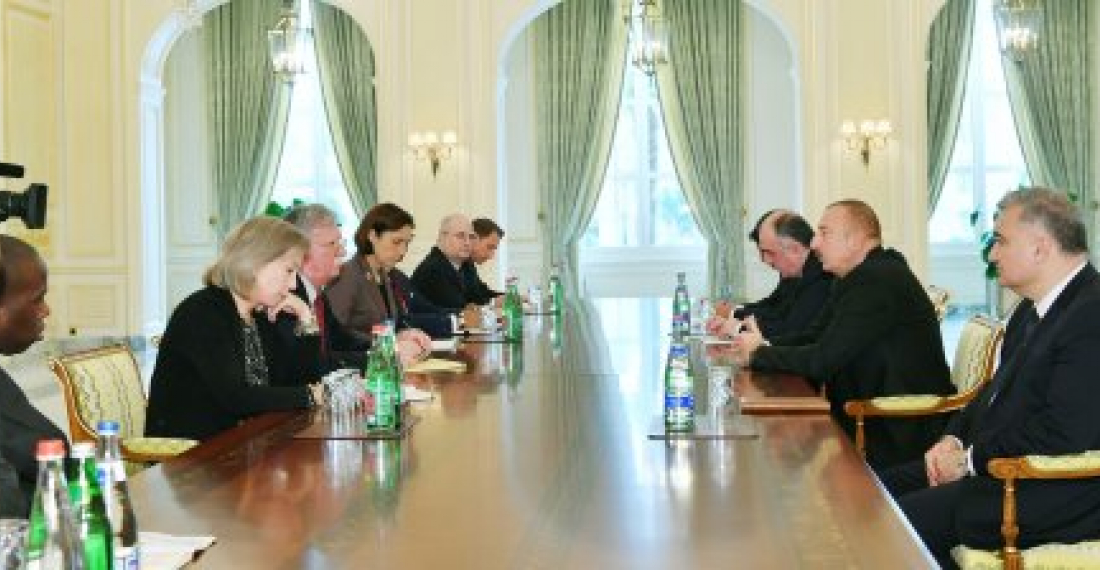US President Donald Trump's National Security Advisor, John Bolton, on Wednesday arrived in Baku at the start of a tour of South Caucasus countries. Bolton is the most senior US official to visit the region for some time. He travelled to Azerbaijan from Moscow where earlier in the week he met with Russian president Vladimir Putin to prepare for the forthcoming US-Russia presidential summit which is due to take place in Paris on 11 November.
In Azerbaijan Bolton met with President Ilham Aliyev and Foreign Minister Elmar Mammadyarov. During the meeting with Aliyev "issues related to various aspects of strategic cooperation between Azerbaijan and the United States were discussed, and confidence was expressed in the future successful cooperation between the two countries", the website of the Azerbaijani presidential administration reported. Both sides praised the level of relations in various fields, including economic and strategic issues
During his visit to Azerbaijan John Bolton also expressed the US continued commitment to the resolution of the Nagorno-Karabakh conflict, in its role as co-Chair of the OSCE Minsk Process.
From Azerbaijan Bolton travelled to Armenia where on Thursday he is expected to have talks with Armenian leaders. He will visit Georgia before flying back to Washington at the end of the week.
source: commonspace.eu
photo: US National Security Advisor, John Bolton, meeting with Azerbaijani President Ilham Aliyev in Baku on Wednesday, 24 October 2017 (photo courtesy of the press service of the president of Azerbaijan)







